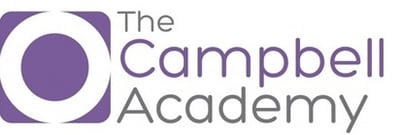
Following my previous experiences with the General Dental Council I have written and spoken excessively about dental regulations in the UK. And one of the main tenants of the discussion has been the principle of legitimacy and authority. I explain that in more detail here.
To summarise though people in authority have a responsibility to legitimately exercise the authority that they have the privilege to hold. And one of the main principles of that legitimacy is predictability and fairness. The rules today should pretty much be the same as the rules tomorrow, and the rules for me should pretty much be the same as the rules for you. To many this concept seems axiomatic.
Any parent who considers there parenting and has more than one child understands this concept, as does any reasonable teacher who looks after a class of children. To treat one person differently to another will entirely undermine the authority of the person in charge and in fact children have an innate ability to access fairness and react fantastically to fairness, if it is provided affectively.
In my lecture to the British Dental Conference, I explored this principle in detail in relation to the UK governments reaction to the troubles in Northern Ireland and I’ll return to this concept again as I continue to observe the behaviors, actions and authority of the General Dental Council on a day to day basis.
Our practice is seen as specialist referral centre locally and as a result attracts referrals both from colleagues and from individual patients for difficult cases and remedial treatment. We often find ourselves in a situation were patients are questioning what has previously been carried out, and a standard approach to this is always the same. We suggest to patients that if they are concerned with treatment they have previously received that in the first instant they should discuss this at length with the practitioner that provided this and offer the opportunity to provide explanation and any compromise that they see fit in relation to the disappointment that the patient is experiencing. Surely this seems like the only approach to these situations? I would always want the opportunity to discuss with a patient a situation with which they were unhappy. Sadly though and despite that, patients still progress on to the regulator and therefore we often have incidents within the practice were our case notes are requested by the General Dental Council as part of an ongoing investigation.
We had a request this week for a similar situation were a patient has seen us for further advice and treatment and the notes are now requested by the General Dental Council for inspection. The thing about this request is that it comes in a letter from the General Dental Council, from a named case worker, specifically asking for case notes (extremely sensitive material) and radiographs for a named patient. The letter explains that it contains a declaration from the patient which is signed to allow release of the case notes to the General Dental Council. But on this occasion no declaration was present within the bundle.
This is a mistake, or an emission or is it deliberate? This then necessitates the practice contacting the General Dental Council to ask about the emission of the Z piece of paper. On communication with the council we were asked to provide the patients name over the phone so that they can check the records. This is a problem because the patient has not given us any release to discuss the case with anyone else, because we do not have the signed piece of paper. On this occasion it was only by the experience, skill and quick wittiness by my assistant practice manage Lynne who refused to give the patients name over the phone and insisted that the GDC searched for this case by there own reference number and they were able to realise that the piece of paper had not been sent. Is it sinister or cynical to think that this might be a trap? That we might be being asked to provide patients details when we in fact do not have the authority. Or is it a simple mistake by the named case worker to not send the appropriate piece of paper. Should I complain about the case worker and ask for there performance to be reviewed, for the whole case to be reviewed and see if they have made any further mistakes which may in fact put there lively hood at risk, or at very least provide them with “a fitness to regulate history”. I think not.
I think on this occasion the case worker has made a mistake. I don’t think this is a trap. I hope though your beginning to see the point because this is a significant error which should be treated like a significant event, but in fact was passed off in a quite blase manor when we contacted the council to inform them of there emission. This could perhaps be overlooked if it had been the first occasion in which something like this had happened in our practice but it is not. In my own case I was contacted directly by the council to ask why I had not submitted radiographs and scans which had been taken for the patient because the expert which was reporting for the council wished to view these. It was only when I pointed out the fact that these were sent by recorded delivery and I had proof of postage that they checked the office to find out they were placed some were else. I’m afraid this is a story, which is recounted time and time again by fellow professionals who are involved in cases. And this returns me of course to the matter of legitimacy and authority. As dentists we now feel we are not able to make mistakes and we are certainly not allowed to make “administrative emissions”. If we fail to have a consent form signed its deemed that consenting of a patient never took place. If we miss a set of case notes during a busy day it’s deemed that the appointment never happened, or anything we recount back from that appointment is untrue. As a result to the continued over bearing nature of the General Dental Council (and I have evidence of this were the case assessor system is not working) we continue to see patients with complications as threats to our lively hood in practice instead of normal passages of day to day work. I do not think that the named case worker in the case above that I have discussed is worried about there long time employment prospects as a result of emitting to send a form to a single dental practice but I do know dentists who are extremely concerned when similar things happen in there own practice and I think this demonstrated that fairness and proportionality does not exist within the regularity system. Which brings me to the point of the amount of cases taken to hearing at the council and that have been returned as no case to answer over the last two years. These must be considered to be a complete and utter failure of the system and for there to have been so many (approx. 12 in the past two years) should be seen as huge significant event within the regulatory system, which must be investigated. The investigation for such cases must be transparent and the profession must be able to see what is happening when failures of this nature occur in the same way that the General Dental Council will publish significant failings in clinical care. They show that the public are being protected. In each no case to answer verdict I would contend that the public are being damaged, as a practitioner, they’ve been brought through a terrible ordeal for them, their family and their staff. And psychologically affected for no reason what so ever due to a failing of procedure. This will have an over riding long term affect on the people who are treated by that practitioner going forward and this is a result of the councils actions and procedures. It is still time to re address the imbalance in dental regulation and it is still time to re apply the principles of legitimacy and authority. There is clearly a complete lack of understanding of what it is to work as a health care professional among the upper echelons of the council and I’m afraid that seems to be both from the non dental and dental members.
We will not be sending a complaint to the council in relation to the case worker above because we are health care professionals and we understand that nothing is perfect and not everything goes to plan, and what we must do in situations that are less than ideal is engage, learn and move on.
Blog Post Number - 1278

